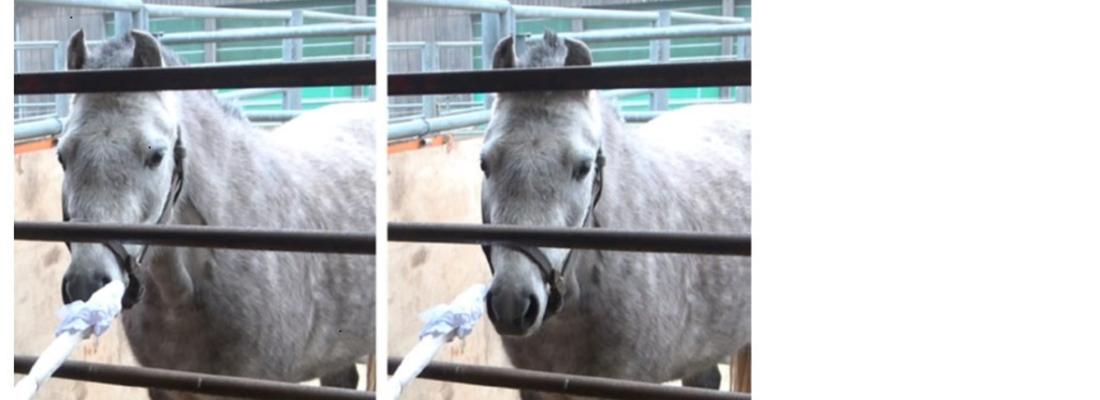Biodiversity Reading time 2 min
Joy or fear, horses sense our emotions
Published on 22 May 2023

Animals are widely believed to sense human emotions through smell. Chemoreception is the most primitive and ubiquitous sense, and brain regions responsible for processing smells are among the oldest structures in mammalian evolution. Thus, chemosignals might be involved in interspecies communication. The communication of emotions is essential for social interactions, but very few studies have clearly shown that animals can sense human emotions through smell.
We used a habituation-discrimination protocol to test whether horses can discriminate between human odors produced while feeling fear vs. joy. Horses were presented with sweat odors of humans who reported feeling fear or joy while watching a horror movie or a comedy, respectively. A first odor was presented twice in successive trials (habituation), and then, the same odor and a novel odor were presented simultaneously (discrimination). Watch the video.
The two odors were from the same human in the fear or joy condition; the experimenter and the observer were blinded to the condition. Horses sniffed the novel odor longer than the repeated odor, indicating they discriminated between human odors produced in fear and joy contexts. Moreover, differences in habituation speed and asymmetric nostril use according to odor suggest differences in the emotional processing of the two odors.
Jardat, P.; Destrez, A.; Damon, F.; Menard-Peroy, Z.; Parias, C.; Barriere, P.; Keller, M.; Calandreau, L.; Lansade, L., 2023. Horses discriminate human body odors between fear and joy contexts in a habituation-discrimination protocol. Scientific Reports, 13 (1): 11. http://dx.doi.org/10.1038/s41598-023-30119-8
